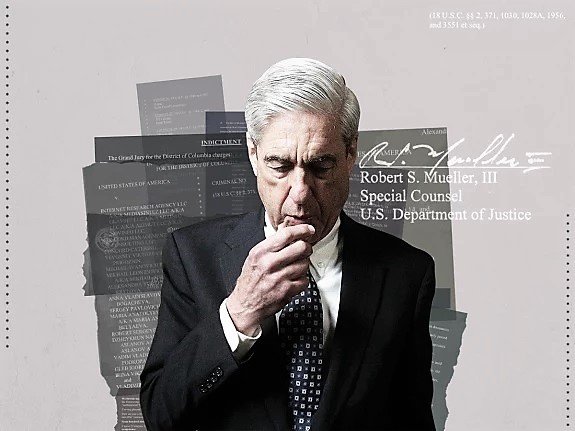Special counsel Robert Mueller’s team is in direct talks with the House Judiciary Committee about whether he will testify before Congress, according to multiple reports.
President Trump today said he wouldn’t prevent the former special counsel from testifying before Congress, telling reporters he would leave that decision up to Attorney General William Barr.
Barr said this week that he wouldn’t prevent Mueller from testifying.
If and when it happens, many observers believe it could be the most consequential public hearing heading into an election year in history.
For the first two years of the Trump administration, the Justice Department found itself locked in war to protect Russia special counsel Robert Mueller from the president himself.
Now, the siege has turned to an unusual internal struggle between the new attorney general and the special counsel.
The protector has become the rival.
In just under three months on the job, Barr has charted a course that has put him in conflict with Mueller whose investigation delivered a scathing account of Trump’s conduct in office that stopped short of accusing him of a crime.
One of Barr’s first acts supervising that probe was to step in and clear the president of criminal obstruction when Mueller wouldn’t.
Mueller in the March 27 letter slammed Barr’s memo, saying that it created “public confusion about critical aspects of the results.”
Barr dismissed the letter objecting to his handling of the report as “snitty.”
And in hours of sworn testimony, Barr offered lawmakers an account of the president’s conduct far more charitable to Trump than the one Mueller’s investigators detailed, sometimes offering up a defense of Trump at odds with the investigation’s findings.
Barr’s testimony this week before the Senate Judiciary Committee – his first public remarks since he disclosed much of Mueller’s report last month – offered the clearest view yet of the attorney general’s differences with a special counsel he frequently describes as a personal friend, whose investigation altered the course of Trump’s presidency.
His performance earned nothing but plaudits from the president, who had complained that his first attorney general, Jeff Sessions, did too little to protect him.
Trump described Barr’s performance during his testimony as “fantastic.”
Congressional Democrats and some former Justice Department lawyers came away with a view of an attorney general too willing to defend the president.
“Every misrepresentation, every semantic trick goes to the benefit of the president,” former federal prosecutor Patrick Cotter said of the attorney general.
“It can only lead to the conclusion that consciously or subconsciously, somehow he’s decided that his role is to do everything he can to put forth the Trump position as to how the Mueller report should be interpreted,” Cotter said. “I don’t think that’s the role of the attorney general.”
The apparent split between Barr and the special counsel whose work he supervised solidified Democrats’ determination to hear from Mueller directly, a view that was cemented still further when Barr made good on his threat to skip a hearing before a House panel because he objected to being questioned by staff members.
As Senate and House Democrats have turned up the heat in recent days – from their demands for access to a complete version of Mueller’s report to his actions that have put him starkly at odds with the special counsel – Barr has only become more resolute.
Asked whether he was still comfortable with his disputed decision to clear Trump of obstruction, the attorney general did not hesitate.
“Absolutely,” he told senators this week.
